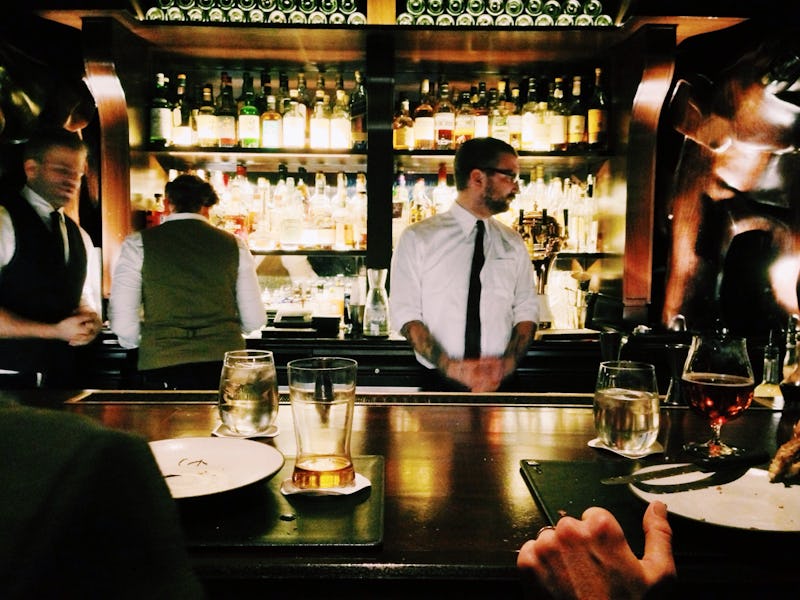This Algorithm Can Tell If You're Drunk on Twitter
Even though you're ashamed, your drunk tweet will also be used for science.

At certain times of night, Twitter is a treasure-trove for intoxicated behavior.
Similar to drunk texting, there are quite of number of people who word-vomit as much as they can confess into 140 characters. Checking the damage in a notification feed may be just as painful (or maybe more depending on what was said) than a hangover. It happens to the best of us. Even Adele used to be a member of drunk Twitter, and has had to hand over her account to her reps.
But your followers aren’t the only ones reading your drunk tweets. University of Rochester engineers created a machine-learning algorithm that finds your drunk tweets. The algorithm can identify drinking hotspots and drunk behavior, which can help understand alcohol-related public health issues and conduct better sociology studies.
If you do a quick search on Twitter, you’ll see that it’s hard to isolate tweets related to alcohol and tweets users sent when they were actually drinking. That was the first thing the research group did — train their algorithm to spot the differences. The algorithm is also more accurate than other machine-learning algorithms at picking up Twitter users’ home location.
The study published on March 10 reveals the algorithm in action as the researchers collected about 11,000 geolocated tweets in two areas: New York City and the suburbs of Monroe County, which includes the city of Rochester. The algorithm filtered alcohol-related keywords — drunk, party, beer — and used Amazon’s Mechanical Turk, a crowdsourcing service that coordinates human intelligence tasks, to analyze the tweets. The researchers also set up parameters to get the algorithm to find tweets sent when users got home. As one would expect, there were way more tweets in New York City associated with drinking than in Monroe County.
The researchers believe the algorithm has a much broader application: it can analyze human movement, relationships between demographics, neighborhood structure, and health conditions in different regions. “Our results demonstrate that tweets can provide powerful and fine-grained cues of activities going on in cities,” the researchers wrote in the study.
So maybe drunk texting isn’t so bad if it’s helping researchers learn more about human behavior? You can be the judge.